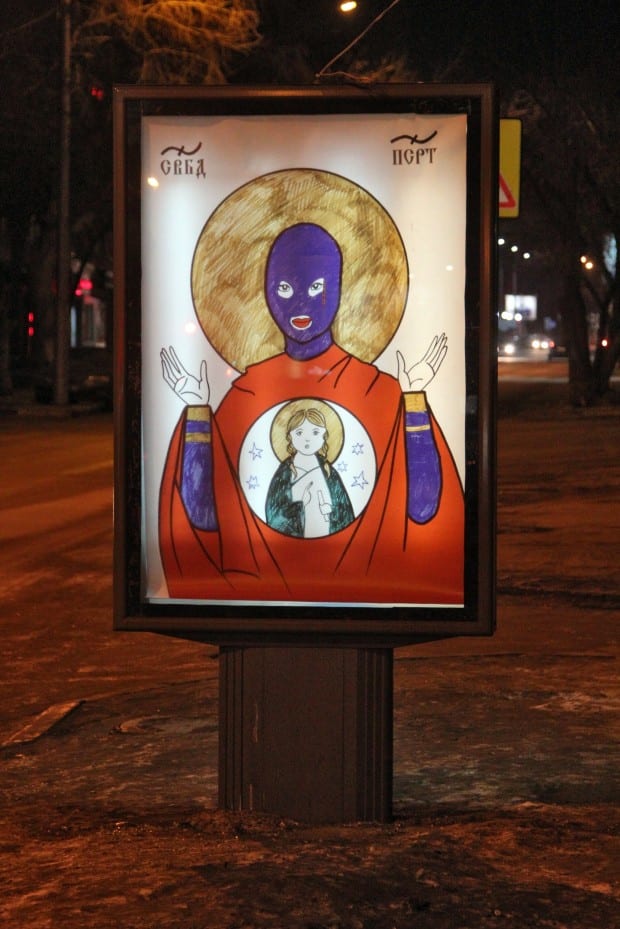Pussy Riot Amnesty: Event of the Year?
By Slovo, on 2 January 2014
The chances are you have already heard/had enough of Pussy Riot and their ground-breaking punk prayer. Indeed, the scandalous art performance has pretty much dominated the ever so popular international media theme of human rights and ideological totalitarianism in Russia. With popularity of such recurrent themes, it was a great media catch when the punk prayer happened in 2012. Although aimed at the central religious locale – Christ the Saviour Cathedral – it seems the feminist girl band had little ambition or care to get where they are today. Their acceleration to celebrities and role models of democracy and anti-government oppression movement has been swift; the following two year prison sentence – a great achievement in validating the oppressiveness of the regime.
What was little expected is the event of the year: the Pussy Riot amnesty. Their early release in December 2013 as part of the Russian Constitution anniversary occurred just in time to gain positive media momentum before the Olympic Games. Although approved martyrs of a postmodern epoch, PR performance itself has been disliked even by the most liberal supporters of their cause. Not to say, that popularity was ever on their agenda. As the members of the group said in their awkward first out-of-prison interview, they do not act to be liked, they act to make people think. And so it is. It is hard to think of someone left indifferent or without a say on the matter, as the irony shows. From being seen as hooligans, blasphemers and psychotic feminists, to becoming venerated as ‘prisoners of consciousness’, human rights defenders and secular martyrs….they have even been compared to Jesus Christ himself, as their equally eccentric colleague Pyotr Pavlensky (yes, the one who nailed his private parts to the Red Square) suggests.
I too share ambiguous feelings towards the group. At the same time I cannot help realising that it has done a lot more than it has anticipated: it really did make people think and discuss. Not just about the nauseating cliché subjects in Russia-related news (human rights, Putin, totalitarianism), but the social experiment itself. That of the merging of the three foundations of human social life: politics, religion and art, and the bizarre outcomes it can lead to.
 Close
Close


